News
-
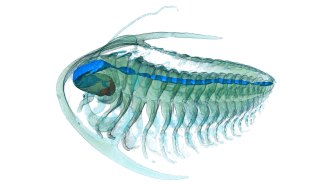 Paleontology
PaleontologyStunning trilobite fossils include soft tissues never seen before
Well-preserved fossils from Morocco help paleontologists understand the weird way trilobites ate and perhaps why these iconic animals went extinct.
-

Calling gun violence a public health crisis is a ‘first step’ to fight it
Three public health experts weigh in on the U.S. surgeon general’s ground-breaking call to label shootings a health problem.
By Meghan Rosen -
 Archaeology
ArchaeologyAncient Egyptian scribes’ work left its mark on their skeletons
Years of hunching over, chewing pens and gripping brushes left the skeletons of Egyptian scribes with telltale marks of arthritis and other damage.
-
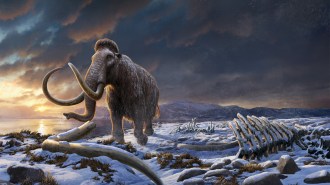 Paleontology
PaleontologyThe last woolly mammoths offer new clues to why the species went extinct
The last population of woolly mammoths did not go extinct 4,000 years ago from inbreeding, a new analysis shows.
By Claire Yuan -
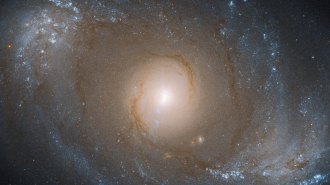 Astronomy
AstronomyWe may finally know the source of mysterious high-energy neutrinos
Regions around supermassive black holes in active galaxies could produce a lot of these mysterious particles.
-
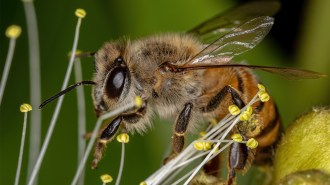 Health & Medicine
Health & MedicineHoneybees can “smell” lung cancer
Bees can detect the scent of lung cancer in lab-grown cells and synthetic breath. One day, bees may be used to screen people’s breath for cancer.
By Meghan Rosen -
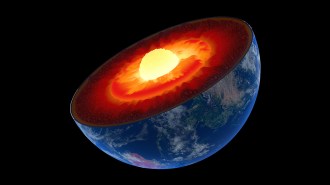 Earth
EarthSomething weird is happening to Earth’s inner core
A new study claims to confirm that the inner core is now rotating more slowly than it was over a decade ago, but some researchers remain skeptical.
By Nikk Ogasa -
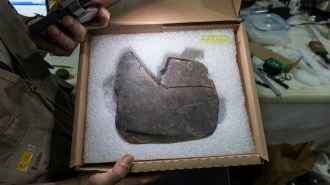 Archaeology
ArchaeologyA lost civilization’s partial alphabet was discovered in a social media post
In online images of an ancient tablet, an expert spotted previously unnoticed letters — a partial alphabet from the Tartessian civilization.
-
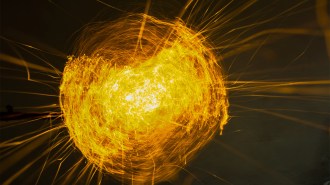 Physics
PhysicsA black hole made from pure light is impossible, thanks to quantum physics
A “kugelblitz” is a black hole made of concentrated electromagnetic energy. But it’s not possible to make one, according to new calculations.
-
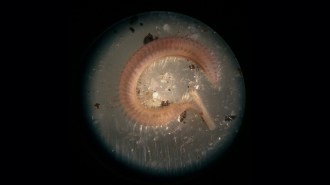 Animals
AnimalsBeneficial bacteria help these marine worms survive extreme cold
Three species of marine worms living in Antarctic waters have beneficial relationships with bacteria that produce antifreeze proteins.
-
 Archaeology
ArchaeologyA new study challenges the idea that Rapa Nui islanders caused an ‘ecocide’
Rapa Niu islanders farmed and fished enough to feed only a few thousand people, too few to decimate society before Europeans arrived, researchers contend.
By Bruce Bower -
 Climate
ClimateA heat dome is baking the United States. Here’s why that’s so dangerous
As climate change makes heat waves more frequent and intense, older adults, pregnant people and others are at higher risk for heat-related symptoms.